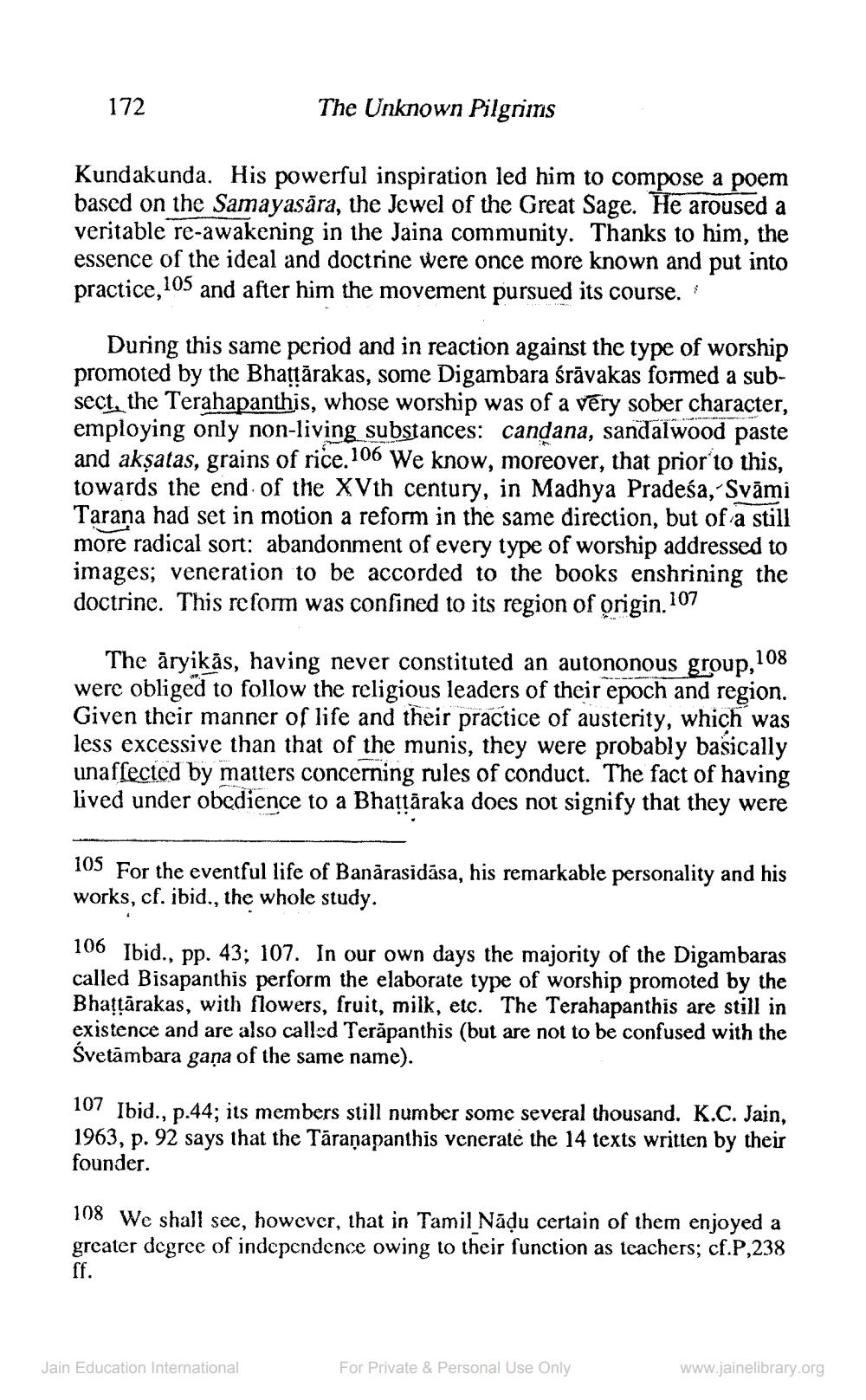________________
172
The Unknown Pilgrims
Kundakunda. His powerful inspiration led him to compose a poem based on the Samayasāra, the Jewel of the Great Sage. He aroused a veritable re-awakening in the Jaina community. Thanks to him, the essence of the ideal and doctrine were once more known and put into practice, 105 and after him the movement pursued its course.
During this same period and in reaction against the type of worship promoted by the Bhattārakas, some Digambara śrāvakas formed a subsect, the Terahapanthis, whose worship was of a very sober character, employing only non-living substances: candana, sandalwood paste and akşatas, grains of rice.106 We know, moreover, that prior to this, towards the end of the XVth century, in Madhya Pradeśa, Svāmi Tarana had set in motion a reform in the same direction, but of a still more radical sort: abandonment of every type of worship addressed to images; veneration to be accorded to the books enshrining the doctrine. This reform was confined to its region of origin. 107
The āryikās, having never constituted an autononous group, 108 were obliged to follow the religious leaders of their epoch and region. Given their manner of life and their practice of austerity, which was less excessive than that of the munis, they were probably basically unaffected by matters concerning rules of conduct. The fact of having lived under obedience to a Bhattāraka does not signify that they were
105 For the eventful life of Banārasidása, his remarkable personality and his works, cf. ibid., the whole study.
106 Ibid., pp. 43; 107. In our own days the majority of the Digambaras called Bisapanthis perform the elaborate type of worship promoted by the Bhaļțārakas, with flowers, fruit, milk, etc. The Terahapanthis are still in existence and are also called Terapanthis (but are not to be confused with the Svetāmbara gana of the same name).
107 Ibid., p.44; its members still number some several thousand. K.C. Jain, 1963, p. 92 says that the Tāraṇapanthis venerate the 14 texts written by their founder.
108 We shall see, however, that in Tamil Nādu certain of them enjoyed a greater degree of independence owing to their function as teachers; cf.P,238
ff.
Jain Education International
For Private & Personal Use Only
www.jainelibrary.org




